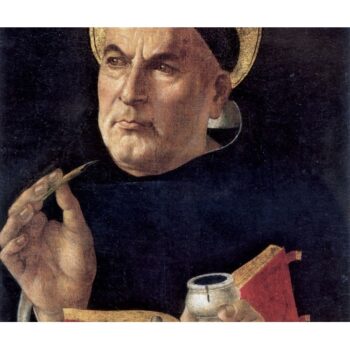Descartes’ Foundationalism
Descartes is known as a foundationalist. A foundationalist thinks we begin our rational reconstruction of our worldview on the basis of a certain foundation. On the basis of what Descartes thinks is now an absolutely certain belief — this apodictic certainty of the existence of the self — Descartes now wants to rebuild his worldview using his geometric method. Here he will accept as true only what he knows on the basis of “clear and distinct ideas.” Logic is now to provide the basis for all further beliefs. Descartes will in the end affirm many traditional ideas as he reestablishes his worldview. The important point here is that he provides a different rationale for the acceptance of those beliefs. Authority is to be questioned. Beliefs are to be accepted on their merit, not because they are part of our tradition or because authorities emphasize them. This spirit, the spirit of the Enlightenment, will increasingly have influence. Increasingly, many thinkers will go further in challenging traditional views than Descartes does. They will not come to the same conclusions that he does about which beliefs from tradition are in the end rationally justifiable. Descartes’ proofs for God’s existence are among the first ideas to come under fire.
The ontological proof for God’s existence
In light of Descartes’ speculation that there could be an evil demon who has tricked us all into believing false ideas about the world, one of Descartes’ first tasks is to show that this isn’t the case. He thinks he can this with a version of the ontological proof for God’s existence. This proof had first been developed by St. Anselm. It is unique among the proofs for God’s existence in that it does not rely on sense experience as its starting point, but is based on an idea and a definition. It thus aligns with Descartes’ geometrical style of proof. Descartes offers a couple versions of this argument. Here is a slightly varied rendition of one of them:
(1) We all have the concept of the most perfect imaginable being.
(2) Existence is a perfection, and that most perfect imaginable being would lack a perfection if it lacked existence.
(3) Therefore, that most perfect imaginable being, by definition as perfect, must exist.
In another version of the ontological argument Descartes argues that the idea of the most perfect imaginable being couldn’t have been the product of the human imagination because something more perfect (the idea of a perfect being) couldn’t be the product of something less perfect (a non-perfect human being). Hence God must have implanted the concept of Himself to human beings as an innate, inborn idea.
For criticisms of these proofs and of other aspects of Descartes’ thought, proceed to the next section.

